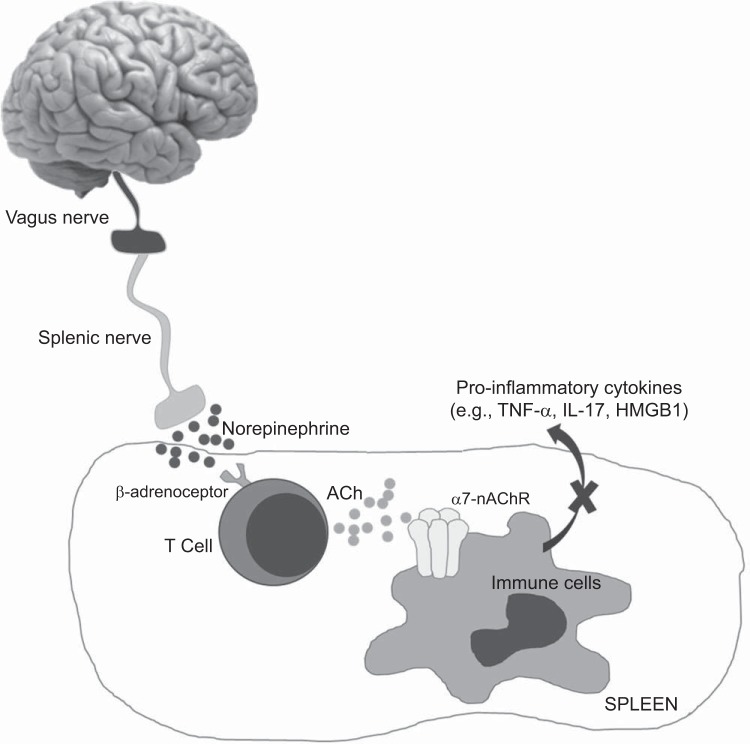Fig. 1.
The cholinergic anti-inflammatory pathway: The cholinergic anti-inflammatory pathway is a vagally mediated neuroimmune reflex that suppresses the release of inflammatory mediators from the spleen. Current understanding of the mechanism suggests that upon activation, the vagus nerve stimulates the splenic nerve to release norepinephrine. Norepinephrine then binds to its β-adrenergic receptors on T cells in the spleen. These T cells produce and secrete acetylcholine (ACh), which binds to its alpha 7 subunit of the nicotinic ACh receptor (α7-nAChR) on immune cells in the spleen, which inhibits the production and release of proinflammatory mediators, such as tumor necrosis factor (TNF)-α, interleukin (IL)-17 and high-mobility group box 1 (HMGB1) from the spleen. As a result, there is a reduction of systemic inflammation.

